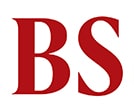Europe Economy
Russia-Ukraine war worsens financial stability risks: European Central Bank
Financial stability risks have increased as the conflict has impacted all aspects of economic activity and financing conditions, ECB Vice President Luis de Guindos
The cost of war: Oil has wildest week on record; dollar highest since 2020
Europe's common currency fell to as low as $1.0973 as traders weighed the impact of Russian sanctions on the European economy
Germany backs 40 bn euro supplementary budget to fund Ukraine costs
The draft supplementary budget envisages new borrowing will take Germany's net debt in 2022 to 138.94 billion euros with the total government expenditure estimated at 495.8 billion euros
Ukraine's economy to shrink by 30% in 2022 due to war, says EBRD
Russia's invasion has upended trade in energy, agricultural commodities and fertilisers and disrupted supply chains, resulting in slower growth across eastern Europe
Portugal registers 2.6 % GDP growth in Q1 amid rise in private consumption
The GDP also grew by 11.9 per cent compared to the same period last year, Xinhua news agency quoted the country's national institute of statistics (INE) as saying
Central bank of Russia lowers key interest rate by 300 basis points to 14%
"With price and financial stability risks no longer on the rise, conditions have allowed for the key rate reduction," Xinhua news agency quoted the bank as saying on Friday
US, European shares advance as euro dives to lowest since 2017
The euro dropped to its weakest since 2017 after Russia halted gas supplies to Bulgaria and Poland, and investors fretted more about the region's economy
Hungarian govt extends price cap on fuel and staple food till July 1
According to the latest official data, the inflation rate in Hungary stood at 8.5 per cent in March, well over the 3 per cent target set by the Hungarian National Bank (MNB)
European Union, India to set up trade, technology council: EU chief Ursula
Both sides agreed that rapid changes in the geopolitical environment highlight the need for joint in-depth strategic engagement
Sanctions on Russia can be revoked, if Moscow changes behaviour: US
Western sanctions on Moscow have contributed to the price pressures, which are hitting the poorest countries the hardest
Inflation in 19 nations using euro soars to record 7.5% in March
Inflation in the eurozone has been setting records for months and is at its highest level since recordkeeping for the euro began in 1997
European stocks set for biggest quarterly drop since 2020
The MSCI World Equity index was down 0.3% on the day, while Europe's STOXX 600 eased 0.2% to sit just below a one-month high hit on Tuesday
Covid, conflict and China
For the countries of Europe, the conflict poses existential questions
ECB pushes on with stimulus exit, hikes inflation forecasts for 2022-24
February's record 5.8 per cent inflation rate and the prospect of an even higher reading in March intensified pressure on the bank to act in line with its inflation-busting mandate
Europe faces pressure to join boycott of Russian oil and gas
The 27-member European Union faces far more economic pain from the war and resulting sanctions than the U.S. true above all when it comes to the oil and gas that powers vehicles
Ukraine crisis puts euro on course for worst week in two years
Euro fell to $1.1008 in early Asia trade, its weakest since May 2020, following news Ukraine's Zaporizhzhia nuclear power plant was on fire after an attack by Russian troops
Ukraine war raises spectre of Russia's first external debt default
Russia has never defaulted on sovereign hard currency debt, but reserve freeze, severed financial ties, politics pose risk ; Moscow has stopped payments on local sovereign bonds already
Stocks make small gains but Ukraine crisis keeps investors cautious
Oil prices surged, with Brent crude touching $113.02 - its highest since 2014 - and U.S. crude coming close to passing its 2013 peak
European stocks slip, oil passes $110, as Ukraine crisis continues
European stock indexes were in their second day of falls, with the STOXX 600 down 0.7% at 0857 GMT, while Germany's DAX was down 1.2% on the day
European stocks slip, oil passes $110, as Ukraine crisis continues
European stock indexes were in their second day of falls, with the STOXX 600 down 0.7% at 0857 GMT, while Germany's DAX was down 1.2% on the day
